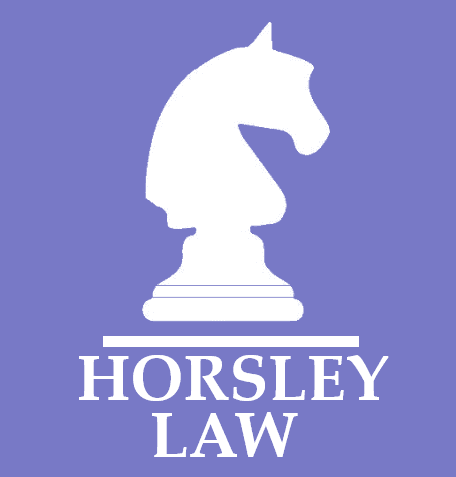MEDICAL NEGLIGENCE
Medical negligence claims – expert legal support you can rely on
When healthcare professionals—such as doctors, surgeons, GPs, or nurses—fail to meet the expected standard, the results can be devastating and, in many cases, life-changing.
We understand that taking legal action in these circumstances can feel daunting—especially when you’re already feeling let down, vulnerable, and unsupported. That’s why we’re committed to making the process as straightforward and stress-free as possible
Our experienced team will guide you through every stage of the claims process with care, compassion, and professionalism. We will thoroughly investigate your case, offer clear, honest legal advice, and advise you whether you may be entitled to compensation and help you secure the justice and compensation you deserve.
Hear From Our Clients
To see how we’ve supported our clients throughout their medical negligence claim journey, we invite you to read their reviews. Discover the positive outcomes they’ve achieved—and how our care and expertise have helped them move forward after a difficult and traumatic time.
If you believe you’ve been affected by medical negligence, contact Horsley Law.
Our dedicated medical negligence solicitors are here to help if you’ve suffered harm as a result of substandard medical care.
Contact us today for a free, no-obligation consultation.
Misdiagnosis or delayed diagnosis
Where there was a failure to diagnose a condition correctly or in a timely manner, leading to worsened health outcomes.
- Failing to identify a condition (e.g., cancer, stroke, or meningitis)
- Incorrect diagnosis leading to the wrong treatment
- Delayed diagnosis causing the condition to worsen
Surgical errors
Mistakes during surgery, such as incorrect procedures, retained surgical instruments, or unnecessary damage to organs
- Performing the wrong procedure
- Operating on the wrong body part
- Leaving surgical instruments inside the patient
- Infections due to poor surgical hygiene or aftercare
Medication errors
Being given the wrong medication or dosage, leading to serious side effects or complications.
- Prescribing the wrong medication or dose
- Administering medication incorrectly
- Failing to consider allergies or drug interactions
Birth injuries
Negligence during pregnancy, labour, or delivery that results in harm to the mother or baby.
- Mistakes during labour or delivery (e.g., failing to monitor foetal distress)
- Improper use of forceps or vacuum
- Delayed Caesarean section causing injury to mother or baby
Poor communication
Clear communication is a key part of safe medical care—and when it’s lacking, patients can suffer avoidable harm.
- Miscommunication between medical staff leading to errors in diagnosis or treatment
- Failing to explain treatment risks or gain informed consent
- Not acting on test results or patient concerns
Inadequate aftercare or follow-up
Negligent aftercare can undo the benefits of treatment and put patients at further risk.
- Failing to monitor recovery or recognise signs of deterioration
- Discharging patients too early, without thorough checks or clear instructions
- Poor wound care or infection control, leading to unnecessary pain, delays in healing, or serious infections
Hospital-acquired infections
Not upholding strict hygiene standards can lead to infections which can prolong recovery, lead to long-term health issues, and in some cases, become life-threatening.
- Poor infection control or inadequate wound care, increasing the risk of complications
- Contracting infections such as MRSA, sepsis, or C. difficile due to poor hygiene, sterilisation, or cleanliness protocols
GP & Doctor negligence
Failure by a GP or primary care provider to refer, diagnose, or treat conditions appropriately.
- Failing to refer a patient for specialist treatment
- Not recognising symptoms that require urgent care
- Rushed or incomplete examinations
Our medical negligence services
Misdiagnosis or delayed diagnosis
Where there was a failure to diagnose a condition correctly or in a timely manner, leading to worsened health outcomes.
Read MoreSurgical errors
Mistakes during surgery, such as incorrect procedures, retained surgical instruments, or unnecessary damage to organs
Read MoreMedication errors
Being given the wrong medication or dosage, leading to serious side effects or complications.
Read MoreBirth injuries
Negligence during pregnancy, labour, or delivery that results in harm to the mother or baby. Mistakes during labour
Read MorePoor communication
Clear communication is a key part of safe medical care—and when it’s lacking, patients can suffer avoidable harm.
Read MoreInadequate aftercare or follow-up
Negligent aftercare can undo the benefits of treatment and put patients at further risk. Failing to monitor recovery or recognise signs
Read MoreHospital-acquired infections
Not upholding strict hygiene standards can lead to infections which can prolong recovery, lead to long-term health issues, and in some
Read MoreGP & Doctor negligence
Failure by a GP or primary care provider to refer, diagnose, or treat conditions appropriately.
Read More

